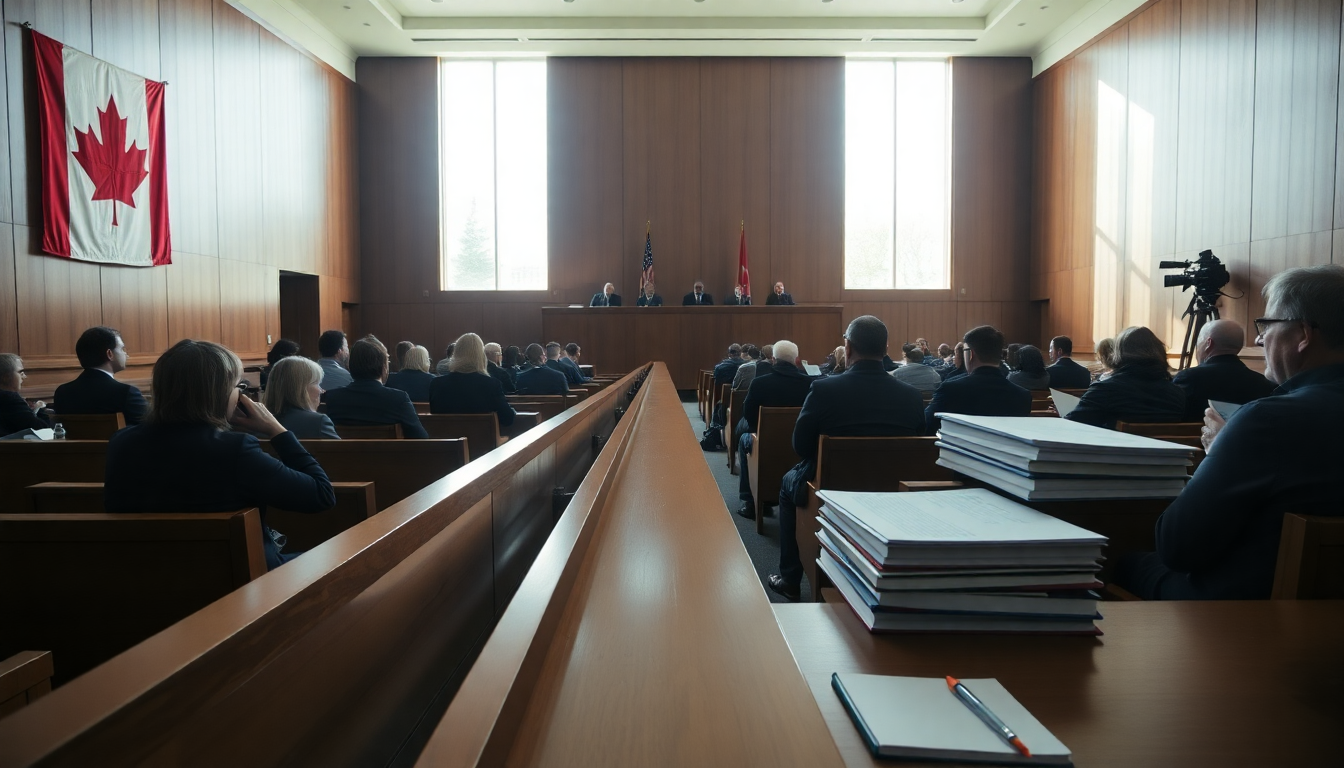Table of Contents
The recent sentencing hearings for Tamara Lich and Chris Barber, key figures in the Freedom Convoy protests, have spotlighted the tricky relationship between law and politics in Canada. Found guilty of mischief, these leaders are now facing serious prison time proposed by the Crown, sparking intense debates about justice and political motivations. So, what does this mean for civil liberties in Canada? Let’s dive into the details of their convictions, the reactions from political figures, and the broader implications for society.
Overview of the Sentencing Proceedings
The hearings for Lich and Barber aren’t just legal proceedings; they’re set against the backdrop of a highly controversial protest that took over downtown Ottawa for three weeks starting in late January 2022. These protests were largely against vaccine mandates and pandemic-related restrictions. The federal government’s decision to invoke the Emergencies Act marked a dramatic conclusion to the convoy, highlighting just how serious the situation had become.
During the hearings, the Crown has suggested a seven-year sentence for Lich and an eight-year sentence for Barber, who is also charged with encouraging others to ignore a court order. This context is crucial because it underscores the legal consequences tied to the protest, which the court determined had a negative impact on both residents and local businesses.
Justice Heather Perkins-McVey pointed out that both leaders actively encouraged ongoing participation in the protest, fully aware of the harm it was causing. The seriousness of the charges reveals a broader judicial stance on maintaining public order and civil disobedience, particularly considering the court’s findings regarding their actions.
Political Reactions and Implications
The Crown’s proposed sentences have ignited outrage among some political figures, especially Conservative Leader Pierre Poilievre, who has publicly condemned the severity of these recommendations. His comments have struck a chord with other Conservative MPs, framing the proposed sentences as political retribution rather than genuine justice. What does this say about the independence of the judiciary and the influence of political narratives on legal matters?
Underneath it all, the situation reflects a larger struggle over how civil liberties are interpreted in Canada. Lich and Barber have pointed out what they see as a double standard in how they are being prosecuted, suggesting that the outcomes of their trials could have a chilling effect on future protests and the exercise of democratic rights.
Moreover, both leaders have expressed gratitude towards Poilievre for his support, illustrating the complex relationship between politics and the judiciary. This dynamic becomes even more significant when you consider Canada’s history of civil protests and the potential precedents that these hearings could set.
Looking Ahead: The Future of Civil Protest in Canada
As the sentencing hearings progress, they are bound to shape public perception of civil disobedience and the rights individuals have to protest against government actions. The outcomes will not only impact Lich and Barber but could also establish a precedent for how similar cases are treated in the future. These judicial decisions may redefine what is considered acceptable protest behavior in Canada and the legal consequences that follow.
It’s essential for everyone to think about how these trials might affect public trust in the legal system and the potential dangers of political interference in judicial matters. Striking the right balance between maintaining public order and protecting citizens’ fundamental rights is a delicate dance that requires careful consideration by both lawmakers and the judiciary.
In conclusion, the sentencing of Lich and Barber represents a pivotal moment in Canadian legal and political history. As the hearings unfold, they will undoubtedly provoke strong reactions from various segments of society, emphasizing the contentious nature of civil rights and government accountability in a democratic context. What will the future of civil protest look like in Canada? Only time will tell.


